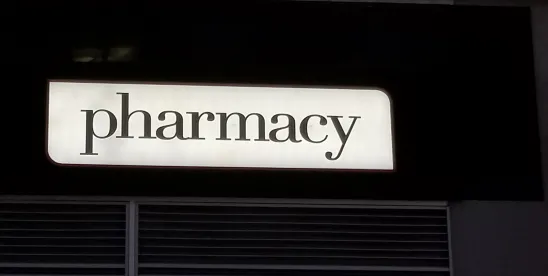Pharmacy Benefit Managers (PBMs) play a large role in the pharmaceutical medication distribution industry and have faced a great deal of litigation in recent years. This blog entry looks at cases against PBMs brought under the U.S. False Claims Act (FCA), as well as those brought as class actions on behalf of various kinds of groups.
FCA Actions
Cases brought against PBMs under the FCA typically involve allegations of fraudulent billing practices, false statements, and kickback schemes. These cases often address whether PBMs have caused false claims to be submitted to government healthcare programs, such as Medicaid, and whether they have engaged in practices that violate the FCA and other related statutes.
First, PBMs may violate the FCA by failing to pay reimbursements to individuals, other business entities, and/or state or federal agencies. In United States v. Caremark, Inc., the U.S. Court of Appeals for the Fifth Circuit held that the district court erred in finding that the Defendant PBM did not impair an obligation to the government within the meaning of the FCA by unlawfully denying reimbursement requests from state Medicaid agencies.
Second, PBMs may violate the FCA by billing individuals, other business entities, and/or state or federal agencies for services that were never rendered. In United States ex rel. Hunt v. Merck-Medco Managed Care, L.L.C., the U.S. District Court for the Eastern District of Pennsylvania addressed allegations that the PBM billed for services not rendered and fraudulently avoided contractual penalties it would otherwise have had to pay. The Court found that the Complaint sufficiently alleged that the PBM caused false claims to be presented to an agent of the United States, satisfying the statutory requirements of the FCA.
Third, PBMs may violate the FCA by overcharging individuals, other business entities, and/or state or federal agencies for services. For example, in two cases that were settled in 2019 in the Western District of Texas and the Northern District of Iowa, two subsidiaries of Fagron Holding USA LLC settled with the U.S. for over $22 million in connection with such a scheme. In the first, Fagron subsidiary Pharmacy Services Inc. (PSI) and its affiliates were accused of submitting fraudulent compound prescription claims to federal healthcare programs, manipulating pricing through sham insurance programs, paying kickbacks to physicians, and illegally waiving copays. In the second, Fagron subsidiary B&B Pharmaceuticals Inc. faced claims under the FCA for setting an inflated average wholesale price for Gabapentin.
Finally, PBMs may violate the FCA by engaging in kickback schemes with drug manufacturers or other entities. These schemes may also involve waiving copays and the provision of unnecessary services to patients. One notable case involves AstraZeneca LP, a pharmaceutical manufacturer, which agreed to pay $7.9 million to settle allegations that it engaged in a kickback scheme with Medco Health Solutions, a PBM. The allegations included providing remuneration to Medco in exchange for maintaining exclusive status of AstraZenica’s heartburn relief drug Nexium on certain formularies, which led to the submission of false claims to the Retiree Drug Subsidy Program. Similarly, Sanford Health and its associated entities agreed to pay $20.25 million to resolve FCA allegations related to false claims submitted to federal healthcare programs. The allegations included violations of the Anti-Kickback Statute and medically unnecessary spinal surgeries, with one of Sanford’s top neurosurgeons receiving kickbacks from his use of implantable devices distributed by his physician-owned distributorship.
Class Actions
Class action cases against pharmacy benefit managers (PBMs) often involve allegations of deceptive practices, breach of fiduciary duty, and violations of contractual obligations. These cases typically involve issues such as the improper handling of rebates, kickbacks, inflated drug costs, and the failure to act in the best interest of plan participants.
First, PBMs may subject themselves to liability by failing to pass on negotiated rebates or other types of savings to their members. In Corr. Officers' Benevolent Ass'n of the City of N.Y. v. Express Scripts, Inc., a union alleged that PBM managers failed to pass on negotiated rebates to its members, instead keeping them for their own benefit. The court found sufficient allegations to support claims of deceptive practices and breach of fiduciary duty, allowing these claims to proceed.
Second, and far more commonly, PBMs face liability for engaging in antitrust violations. Such liability typically arises when PBMs collude with one another to fix drug processes or otherwise improperly influence the market for medications and/or other medical services. For example, in In re Brand Name Prescription Drugs Antitrust Litig., a class of retail pharmacies alleged that drug manufacturers and wholesalers conspired to deny them discounts. The court found sufficient evidence of violations to proceed to trial. Similarly, in Independent Pharmacies vs. OptumRx, more than 50 independent pharmacies filed a class action lawsuit against OptumRx, a division of UnitedHealth Group, alleging that OptumRx failed to comply with state pharmacy claims reimbursement laws, leading to illegal price discrimination and reimbursement violations. Lastly, in Elan and Adam Klein, Leah Weav, et. al v. Prime Therapeutics, Express Scripts, and CVS Health, the Plaintiffs brought a action lawsuit against three major PBMs – Prime Therapeutics, Express Scripts, and CVS Health – on behalf of EpiPen purchasers with ERISA health plans for contributing to EpiPen price inflation through rebates and breaching their fiduciary duty to plan members.
*****
In short, because PBMs play such a large role in the pharmaceutical medication distribution industry, there are many ways that they can subject themselves to liability under the FCA, pursuant to a class action, or otherwise. As the place of PBMs in this marketplace continues to grow, we can expect that litigation against them will do likewise. Potential plaintiffs seeking to bring claims against a PBM should consult with an experienced attorney in order to determine all of the causes of action that may be available to them.
_______________________________________________
1United States v. Caremark, Inc., 634 F.3d 808 (5th Cir. 2011).
2United States ex rel. Hunt v. Merck-Medco Managed Care, L.L.C., 336 F. Supp. 2d 430 (E.D. Pa. 2004).
3 Corr. Officers' Benevolent Ass'n of the City of N.Y. v. Express Scripts, Inc., 522 F. Supp. 2d 1132.
4In re Brand Name Prescription Drugs Antitrust Litig., 123 F.3d 599.





 />i
/>i

